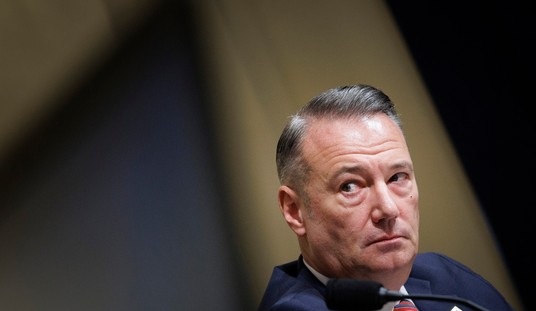Earlier this week, the Washington Post ran an article with the curious headline, “Obama: The most polarizing President. Ever.” While there is no doubt that Obama has been a polarizing figure, the certainty of that statement caught my eye. As it turns out, the article itself doesn’t make that claim — it only says that Obama has the highest differential between approval ratings of each party in his third year than any President since Gallup has been tracking that data, which would be roughly since Eisenhower, I believe. The selection of Obama leaves off Abraham Lincoln, whose election was so polarizing that it led to secession and the Civil War, or Richard Nixon during Watergate, to name just two examples.
Even apart from the absurd basis for the Post’s claim — George W. Bush had three higher polarization ratings, for instance — can we blame Presidents entirely for polarization? In my column for The Week, I argue no, and that this results from a move in political parties from regional and traditional strongholds to more ideological entities:
Both the Republican and Democratic parties have had decades-long shifts in political temperaments in their own search for first principles, starting with the Barry Goldwater candidacy in 1964 and the New Left’s arrival at the Democratic convention in 1968. In short, for almost 50 years, both parties have been changing in fits and starts from their traditional big-tent geographical roots to more ideological organizations. Where we once had plenty of crossover in Congress between blue-dog Democrats and Rockefeller Republicans, the politicians have now affiliated themselves to party by ideology. There has been a remarkable growth of division on non-unanimous votes, especially in the Senate.
It would be foolish to believe that elected officials have partitioned themselves off ideologically without having voters already do the same. Pressure from grassroots activists in both parties has transformed Republicans and Democrats into conservatives and progressives. There are still plenty of subvariants of both, and a spectrum within each group. But over the last 20 years, the notions of “conservative Democrat” and “liberal Republican” have taken on a sepia-tinged patina, a throwback to a bygone era.
There is something to be said for this development, as it tends to focus on actual principles of governance rather than just political expediency. That presents a more honest choice for the voter, even the unaffiliated and/or moderate voter who may not adhere to one set of principles. On the other hand, a little political expediency helps to get tasks accomplished, and the lack of crossover means that more of the routine tasks in Washington end up becoming battlegrounds for larger ideological principles.
Presidents are not disconnected from this process, of course, and presidents have a unique position in American politics from which to help temper or fan these ideological flames. They remain, however, a product of their times rather than a driver of the underlying currents that raised them to leadership positions. As much as we might want to lay the blame on Obama, Bush, or any other president, the actual blame or glory falls on us all.
Be sure to read it all; The Week’s site was down a little earlier, but the column also appears at Yahoo. Speaking of personal responsibility for polarization, though, one theory holds that the online political culture causes people to stop accessing sources that challenge their worldview, especially blogs and blogreaders, and some blame that for increased polarization. A new study by Ohio State shows that those who tend to visit friendly sites also tend more to visit sites challenging their perspective:
Despite the fears of some scholars and pundits, most political partisans don’t avoid news and opinion sources that contradict their own beliefs, according to a new study.
In fact, the more that self-described liberals and conservatives visited online sources supportive of their beliefs, the more likely they were to also view opposition websites, as well as general news sites.
“People aren’t systematically avoiding websites that challenge their political views,” said R. Kelly Garrett, co-author of the new study and assistant professor of communication at Ohio State University.
“They certainly are inclined to seek out sources that reinforce their views, but the more they do that, the more likely they are to at least sample sources that challenge their opinion.”
Garrett conducted the study with Dustin Carnahan and Emily Lynch, graduate students in political science at Ohio State. Their results appear online in the journalPolitical Behavior and will be published in a future print edition.
Perhaps the result is that we tend to organize more honestly. That has its pluses and minuses, but it puts the ideological and philosophical distinctions more clearly in play. That’s neither Obama’s fault nor his beneficence, but simply a result of the evolution in American politics over a very long time that produced Obama as a party leader.
Update: I clarified the last sentence in the first paragraph to make my meaning clear. The “That” reference was really sloppy.








Join the conversation as a VIP Member